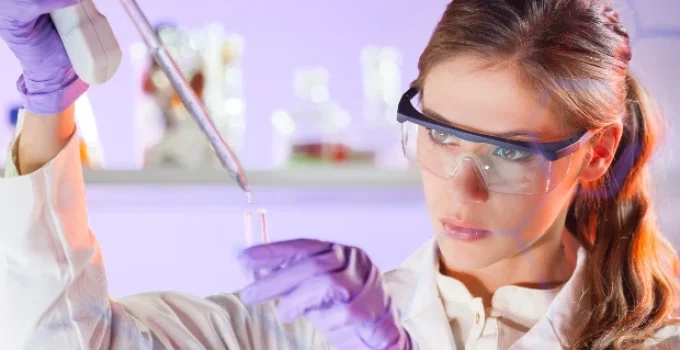What Makes an Element Reactive?
Why do some elements explode in water while others just sit there? Why is sodium dangerous but gold is safe to touch? The answer lies in an element’s reactivity—how easily it joins or breaks apart in chemical reactions. In this article, we’ll explore what makes an element reactive, why it matters, and which elements top the list for being the most reactive in the periodic playground.
🔍 Dive Deeper
- What Is Reactivity?
- What Makes an Element Reactive?
- Most Reactive Elements
- Why Are Some Elements Non-Reactive?
- How Is Reactivity Measured?
- 🎯 Final Thoughts
- 📚 References
🔥What Is Reactivity?
Reactivity is a measure of how quickly or easily an element reacts with other substances. Reactions can involve:
- Giving away electrons
- Taking in electrons
- Combining with other elements
Highly reactive elements can react quickly—sometimes even violently. Others are inert, meaning they hardly react at all.
⚠️ Statistic: Sodium reacts with water so violently that it can catch fire and explode—even when touching a drop of water [1].
➖What Makes an Element Reactive?
Several atomic-level features determine an element’s reactivity:
1. Electron Configuration
- Atoms want a “full” outer shell of electrons (usually 8).
- Elements with 1 or 7 outer electrons are the most reactive because they easily lose or gain electrons.
2. Atomic Size
- Larger atoms (like those lower in the periodic table) lose outer electrons more easily, making them more reactive if they are metals.
3. Electronegativity
- This means how strongly an atom pulls on electrons.
- High electronegativity = likely to gain electrons (like fluorine).
- Low electronegativity = likely to lose electrons (like potassium).
🧪 Statistic: Fluorine is the most electronegative element, making it the strongest electron-grabber on the periodic table [2].
💦Most Reactive Elements
Some elements are known for being extremely reactive. Here’s a quick comparison:
| Element | Group | Type | Why It’s Reactive |
|---|---|---|---|
| Fluorine (F) | 17 | Non-metal | Needs 1 electron |
| Sodium (Na) | 1 | Metal | Has 1 electron to give |
| Potassium (K) | 1 | Metal | Larger atom, easy to lose electron |
| Chlorine (Cl) | 17 | Non-metal | Strong electron taker |
| Calcium (Ca) | 2 | Metal | Reacts with water and acids |
🌊 Statistic: Potassium reacts so fast with water that it can burst into flames and release hydrogen gas [3].
🎈Why Are Some Elements Non-Reactive?
Some elements are the opposite of reactive. These are called noble gases, like helium, neon, and argon. They already have full outer shells of electrons, so they don’t want to gain or lose any.
- They don’t form compounds easily.
- They are used in lights, lasers, and protective environments.
💡 Statistic: Argon makes up 0.93% of Earth’s atmosphere and is used in welding because it doesn’t react [4].
🌡️How Is Reactivity Measured?
Scientists use chemical tests and reaction speed to measure how reactive an element is. Here are a few common methods:
- Reaction with water or acid: Faster bubbling = more reactive.
- Temperature change: Big heat jumps = stronger reaction.
- Electron transfer speed: Measured with special sensors.
Reactivity Series (Simplified)
| High Reactivity | Medium | Low Reactivity |
|---|---|---|
| Potassium (K) | Zinc (Zn) | Gold (Au) |
| Sodium (Na) | Iron (Fe) | Silver (Ag) |
| Calcium (Ca) | Tin (Sn) | Platinum (Pt) |
🔬 Statistic: Gold and platinum are among the least reactive elements, which is why they don’t tarnish or rust [5].
🎯 Final Thoughts
So, what makes an element reactive? Reactivity helps us understand how elements behave. Elements like sodium and fluorine are always looking for chemical action—they’re eager to gain or lose electrons. Others, like helium and gold, prefer to stay calm. Whether it’s making fireworks or building batteries, knowing which elements are reactive helps scientists, doctors, and engineers shape the world around us.
📚 References
- Royal Society of Chemistry. “Group 1 – The Alkali Metals.”
https://edu.rsc.org/alkali-metals - Khan Academy. “Trends in Electronegativity.”
https://www.khanacademy.org/chemistry - Compound Interest. “Why Do Alkali Metals Explode in Water?”
https://www.compoundchem.com - U.S. Geological Survey. “Argon.”
https://pubs.usgs.gov - Chemistry LibreTexts. “Reactivity of Metals.”
https://chem.libretexts.org
📌 Learn More About Elements
- What Makes an Element Soluble?
- What Makes Up an Element?
- What Makes an Element Reactive?
- What Makes an Element a Metal?
- What Makes an Element Stable?
